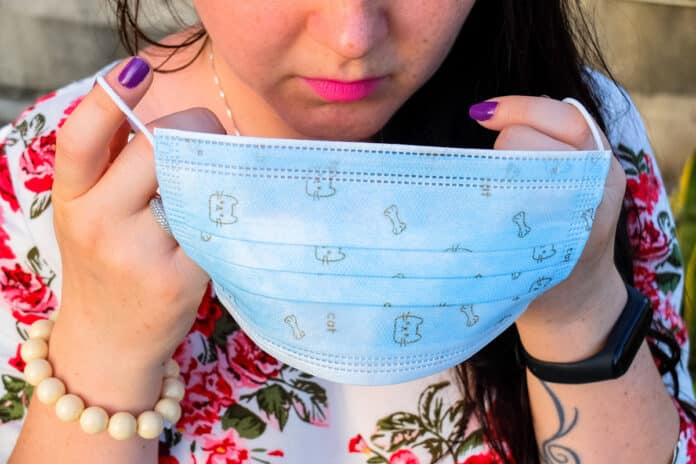
Dear EarthTalk: What’s the environmental impact of all the single-use PPE we are throwing away now in huge numbers as a result of responding to the COVID-19 crisis?
— Jay M., Cary, NC
There’s no question about it: all the disposable Personal Protective Equipment (PPE) in our waste stream is taking a toll on the environment. A recent study in the journal Environmental Science & Technology found that we are using some 129 billion disposable masks and 65 billion disposable gloves every month around the world nowadays as we try to stay safe in the midst of the worst pandemic to hit the human race in a century.
Most of the masks in the U.S. are made out of polypropylene-based plastic but some are made from related forms of plastic such as polystyrene, polycarbonate, polyethylene or polyester. These synthetic fibers are designed to resist liquids and do not biodegrade in the environment once discarded, instead breaking down into smaller and smaller pieces of plastic that end up in landfills or, even worse, as litter that finds its way into waterways and the ocean.
Some of the discarded PPE ends up in medical waste bins and is shipped off to an incinerator for disposal, which unfortunately may not be any better for our health or the environment. According to the U.S. Environmental Protection Agency (EPA), incinerators send particulate matter, heavy metals, acid gases, nitrogen oxides, carbon monoxide and other noxious pollutants airborne. As such, environmental advocates aren’t happy about a plan by the United Nations to help communities around the world set up their own small local incinerators to deal with PPE and other COVID-related waste.
Meanwhile, reusable masks may have a longer life as a useful product, but that doesn’t mean they’ll necessarily biodegrade in the environment when their time comes. Most are made from cheap synthetic fabrics like nylon or polyester and are prone to breakage and short lifespans, and can last even longer and wreak more havoc when littered into the environment.
The upshot of all this is that we’ll have discarded PPE from the pandemic around for a lot longer than we would like. It joins the rotting plastic that sits in landfills, washes up on beaches and floats in oceans, amounting to more than five trillion plastic particles contaminating the world’s surface waters. The particles are toxic to ecosystems and wildlife. Marine creatures can mistake mask remnants and fibers for food, and/or can get entangled in them so they can’t hunt, feed or eat.
So what can we do to offset, or even halt the impact? The pandemic continues, but by choosing reusable, biodegradable masks, we can reduce the demand and consumption of PPE. Eco-friendly alternatives are available—or you can make your own using salvaged fabric and online craft guides. The Hemp Foundation and Tentree sell masks made from biodegradable and repurposed materials. Meanwhile, Bambooo’s bamboo masks are made out of sustainably sourced, pesticide-free bamboo, and Planet Organics’ cotton/rubber varieties are also attractive and easy on the environment.
















